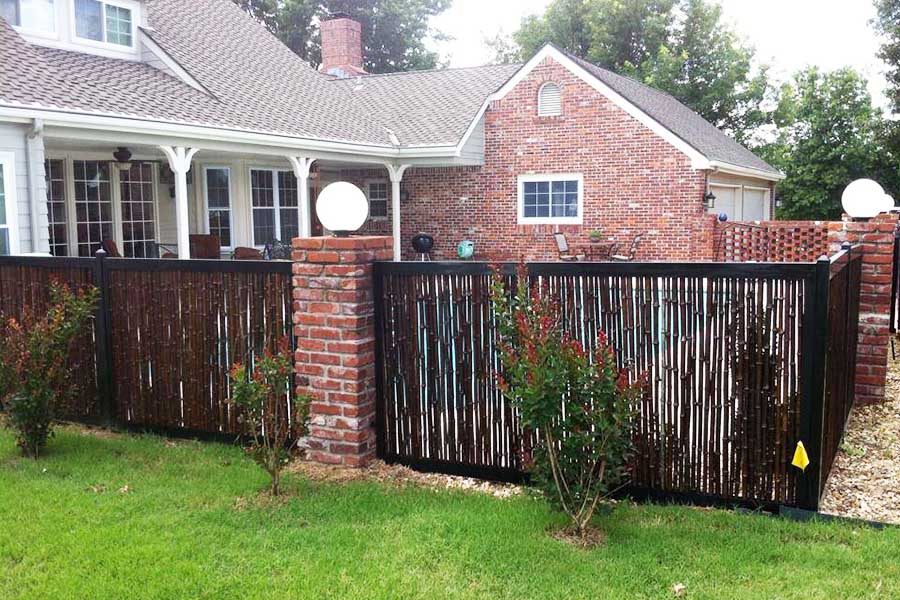All Categories
Featured
If you're considering installing a fencing around your residential or commercial property, comprehending the authorization demands in your location is crucial. While constructing a fencing might seem like a straightforward DIY task, numerous laws may govern its building relying on where you live. Failing to acquire the correct authorizations can cause penalties, penalties, and even having to get rid of the fence altogether. In this guide, we'll damage down the different authorizations you might need to set up a fence and exactly how to guarantee your job remains compliant with local laws.
Why Are Permits Necessary for Fencing Installation? Authorizations are needed to make certain that the fencing you build adheres to local structure codes, zoning guidelines, and security criteria. They guarantee that the fence will not block utilities, website traffic circulation, or produce hazards for pedestrians.
![]()
Kinds Of Permits You May Requirement. Structure License. A building authorization is one of the most common requirement for setting up a fence. This authorization makes certain that the framework you build abide by local safety codes and policies. You may require to acquire a building authorization if your fencing surpasses a specific elevation (typically around 6 feet) The local authorities will typically review your strategies to guarantee that your fence is structurally audio and secure.
Zoning License. Zoning legislations govern land use in your location, and they usually manage where fencings can be mounted, along with just how high they can be. A zoning permit ensures that your fence conforms with these policies. Your fence might require to be established back a specific range from pathways or property lines. Zoning policies can vary by community, so it's crucial to check the certain regulations that relate to your place.
Homeowners Association (HOA) Approval. If your residential or commercial property belongs to a home owners organization, you may need approval before setting up a fence. HOAs commonly have strict rules pertaining to the type, design, and materials used for fences to preserve an uniform look throughout the area. The HOA may need you to send thorough plans or request authorization before installment. Ensure you follow these guidelines to stay clear of prospective fines or penalties.
Specialized Permits. In many cases, you might require specialty permits based upon the area of your residential or commercial property or the nature of your fencing. If your building is in a flood area, you might require additional licenses to guarantee that your fence does not block water drainage or water circulation. Similarly, if you intend to develop a fence near an ecologically secured area, you may require a special license to abide by ecological policies.
![]()
Energy Easements and Utility Company Authorizations. Some buildings have utility easements, which are locations designated for utility cables, pipes, or lines. Before installing a fence, you must check if your residential property has an easement. Constructing a fence within an easement can hinder energy maintenance or damage underground lines. You may require authorization from the utility company or regional authorities before waging the setup.
How to Figure Out Which Allows You Need. Talk To Local Authorities. The very first step in establishing the permits needed is to call your neighborhood structure division or zoning office. They can give certain details concerning what authorizations are essential for your area. Several cities have on-line resources or portals where you can check the needs or also get a license online.
Get In Touch With a Professional Fencing Contractor. A regional fence specialist is frequently aware of the permit process and regional regulations. They can assist you navigate the demands and ensure that your job is compliant. Many specialists likewise take care of the license application procedure on your part, saving you time and initiative.
Review Your Neighborhood's HOA Standards. Make certain to assess their standards before applying for any kind of permits if you live in a neighborhood controlled by an HOA. The HOA might require specific layouts, products, or height restrictions for fencings within the community. Submit your strategies to them for authorization prior to continuing.
![]()
Repercussions of Not Getting an Authorization. Setting up a fence without the required permits can cause major effects. You might face penalties, be purchased to get rid of the fencing, or be needed to redo the installment to fulfill code requirements. On top of that, selling your home could be made complex if the fencing does not satisfy neighborhood laws. Possible purchasers may hesitate to acquire a residential property with an unpermitted fence, specifically if it's in infraction of zoning legislations.
Verdict. Prior to installing a fence on your building, ensure you recognize the neighborhood laws and acquire any type of required permits. Structure permits, zoning licenses, HOA authorizations, and specialized allows all play an essential function in guaranteeing that your fencing is risk-free, lawful, and certified. Putting in the time to research and secure the appropriate licenses will certainly conserve you from costly blunders and possible legal problems in the future. Whether you're planning a privacy fence or an ornamental limit, adhering to these actions will aid make the installment process smooth and convenient.
Why Are Permits Necessary for Fencing Installation? Authorizations are needed to make certain that the fencing you build adheres to local structure codes, zoning guidelines, and security criteria. They guarantee that the fence will not block utilities, website traffic circulation, or produce hazards for pedestrians.

Kinds Of Permits You May Requirement. Structure License. A building authorization is one of the most common requirement for setting up a fence. This authorization makes certain that the framework you build abide by local safety codes and policies. You may require to acquire a building authorization if your fencing surpasses a specific elevation (typically around 6 feet) The local authorities will typically review your strategies to guarantee that your fence is structurally audio and secure.
Zoning License. Zoning legislations govern land use in your location, and they usually manage where fencings can be mounted, along with just how high they can be. A zoning permit ensures that your fence conforms with these policies. Your fence might require to be established back a specific range from pathways or property lines. Zoning policies can vary by community, so it's crucial to check the certain regulations that relate to your place.
Homeowners Association (HOA) Approval. If your residential or commercial property belongs to a home owners organization, you may need approval before setting up a fence. HOAs commonly have strict rules pertaining to the type, design, and materials used for fences to preserve an uniform look throughout the area. The HOA may need you to send thorough plans or request authorization before installment. Ensure you follow these guidelines to stay clear of prospective fines or penalties.
Specialized Permits. In many cases, you might require specialty permits based upon the area of your residential or commercial property or the nature of your fencing. If your building is in a flood area, you might require additional licenses to guarantee that your fence does not block water drainage or water circulation. Similarly, if you intend to develop a fence near an ecologically secured area, you may require a special license to abide by ecological policies.

Energy Easements and Utility Company Authorizations. Some buildings have utility easements, which are locations designated for utility cables, pipes, or lines. Before installing a fence, you must check if your residential property has an easement. Constructing a fence within an easement can hinder energy maintenance or damage underground lines. You may require authorization from the utility company or regional authorities before waging the setup.
How to Figure Out Which Allows You Need. Talk To Local Authorities. The very first step in establishing the permits needed is to call your neighborhood structure division or zoning office. They can give certain details concerning what authorizations are essential for your area. Several cities have on-line resources or portals where you can check the needs or also get a license online.
Get In Touch With a Professional Fencing Contractor. A regional fence specialist is frequently aware of the permit process and regional regulations. They can assist you navigate the demands and ensure that your job is compliant. Many specialists likewise take care of the license application procedure on your part, saving you time and initiative.
Review Your Neighborhood's HOA Standards. Make certain to assess their standards before applying for any kind of permits if you live in a neighborhood controlled by an HOA. The HOA might require specific layouts, products, or height restrictions for fencings within the community. Submit your strategies to them for authorization prior to continuing.

Repercussions of Not Getting an Authorization. Setting up a fence without the required permits can cause major effects. You might face penalties, be purchased to get rid of the fencing, or be needed to redo the installment to fulfill code requirements. On top of that, selling your home could be made complex if the fencing does not satisfy neighborhood laws. Possible purchasers may hesitate to acquire a residential property with an unpermitted fence, specifically if it's in infraction of zoning legislations.
Verdict. Prior to installing a fence on your building, ensure you recognize the neighborhood laws and acquire any type of required permits. Structure permits, zoning licenses, HOA authorizations, and specialized allows all play an essential function in guaranteeing that your fencing is risk-free, lawful, and certified. Putting in the time to research and secure the appropriate licenses will certainly conserve you from costly blunders and possible legal problems in the future. Whether you're planning a privacy fence or an ornamental limit, adhering to these actions will aid make the installment process smooth and convenient.
Latest Posts
Discover Outstanding Vehicle Maintenance Care in Chicago – Drive with Confidence
Published May 27, 25
1 min read
Uncover Cost-Effective Auto Repairs with Montclare’s Limited-Time Service Specials
Published May 26, 25
1 min read
Find Brake Repair & More: Complete Services Guide from Montclare Auto Repair
Published May 26, 25
1 min read
More
Latest Posts
Discover Outstanding Vehicle Maintenance Care in Chicago – Drive with Confidence
Published May 27, 25
1 min read
Uncover Cost-Effective Auto Repairs with Montclare’s Limited-Time Service Specials
Published May 26, 25
1 min read
Find Brake Repair & More: Complete Services Guide from Montclare Auto Repair
Published May 26, 25
1 min read